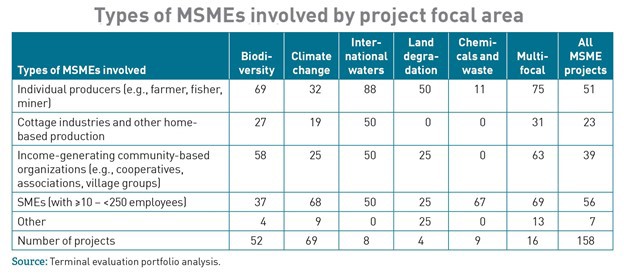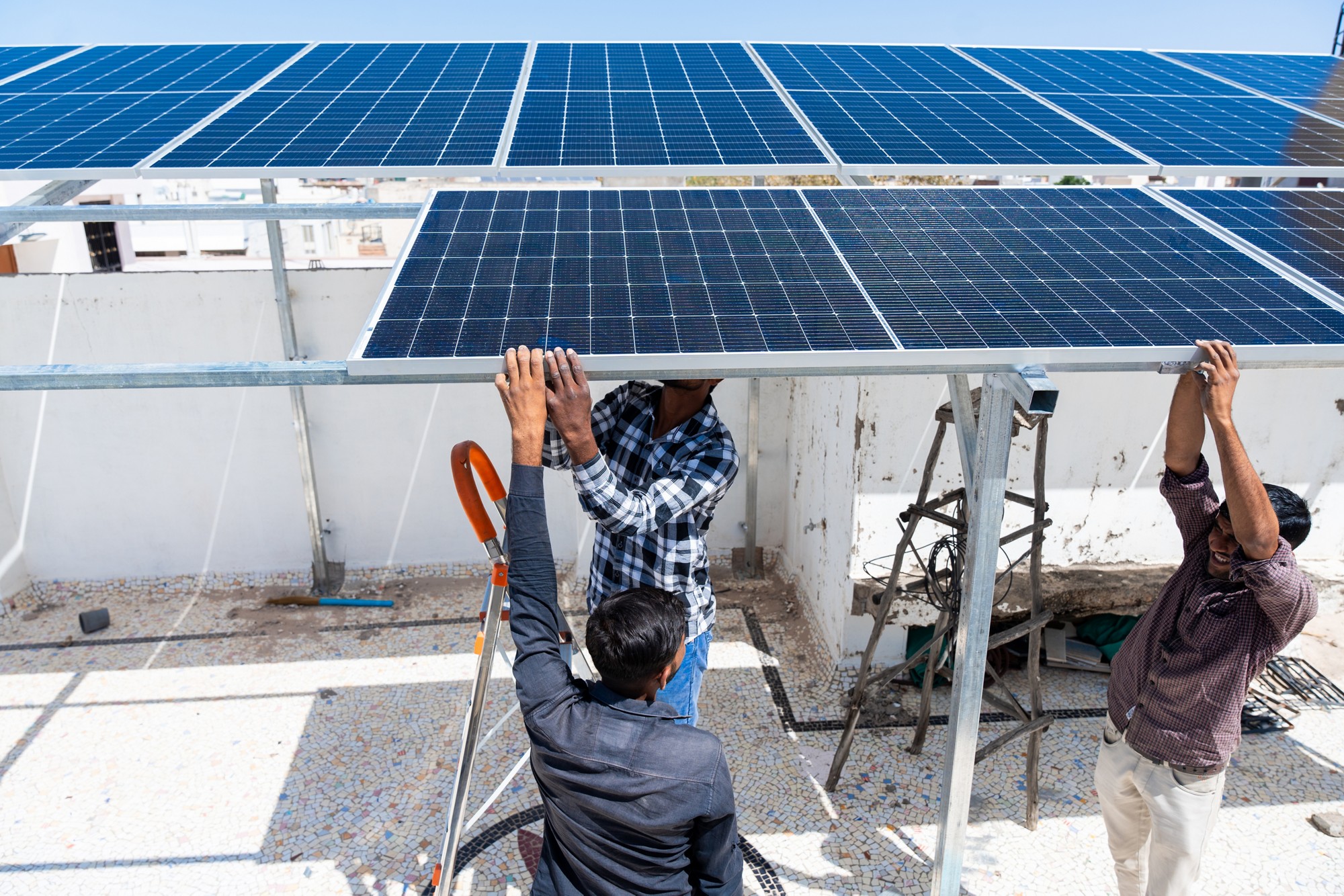When it comes to making the private sector more environmentally sustainable, we don't usually think of the millions of small businesses—better known as micro, small and medium enterprises (MSMEs)— that dominate private sector activity in developing markets.
In the 2021 Evaluation of GEF Engagement with Micro, Small, and Medium Enterprises (MSMEs), we put a spotlight on how the GEF has worked with MSMEs in the last 30 years. We looked at a portfolio of 158 completed projects where MSMEs could clearly be identified as being part of project activities. We also used two case studies to look in-depth at what has actually helped MSMEs adopt more environmentally sustainable practices and technologies, and what has not.



What are some lessons we learned?
MSME projects that effectively engaged the private sector were statistically associated with successful project outcome ratings. In the overall private sector portfolio of 303 projects, a higher percentage of projects that effectively engaged the private sector were rated as likely to be sustainable. This suggests that effective private sector engagement in project activities, and not mere inclusion in the project's design, contributes to achieving environment-related outcomes both during and after the project.
The most common GEF interventions that engaged MSMEs included technical knowledge and skills training, awareness and education initiatives, and access to grants or financing for interventions that generate global environmental benefits.
In the case studies, awareness and education initiatives increased the willingness of MSMEs to engage in other project activities and ultimately to adopt new technologies or practices, given sufficient follow-up financial and technical support.
But even among MSMEs, different enterprises had very different needs and barriers arising from their size, subsector, and specific circumstances, leading to different degrees of engagement and magnitude of environmental benefits generated. Micro and small enterprises tended not to economically benefit as much as medium enterprises, because they had a lower level of capital, technical knowledge, production capacity, and other inherent constraints that limited their ability to participate in project activities. Increasing access to financing for this group of MSMEs was not always cost-effective; introducing lower-cost practices and technologies that they could easily adopt provided a viable option for addressing the need to generate both environmental and economic benefits.


How can we engage MSMEs more effectively?
Providing incentives that account for differences in their needs, capacities, motivations, and barriers are crucial for creating a business case for MSMEs and other private sector actors to participate in activities that generate global environmental benefits. Economic viability as well as support for removing logistical, administrative, and financial barriers to switching to introduced technologies ultimately determines the extent to which these technologies are adopted.
Engaging and building the capacity of well-established organizations is a way to enable long-term follow-up support. Projects in the portfolio and case studies demonstrated the advantages of partnering with established organizations with in-depth expertise, such as non-profits or professional associations, especially at the local scale. These partnerships provide GEF projects with access to MSMEs through existing trust and knowledge networks, and increase the likelihood of project activities being sustained by these organizations after project completion.
Disclaimer: The blog presents the views of the authors and does not necessarily reflect the official position of the GEF IEO.


